Visiting Scholars
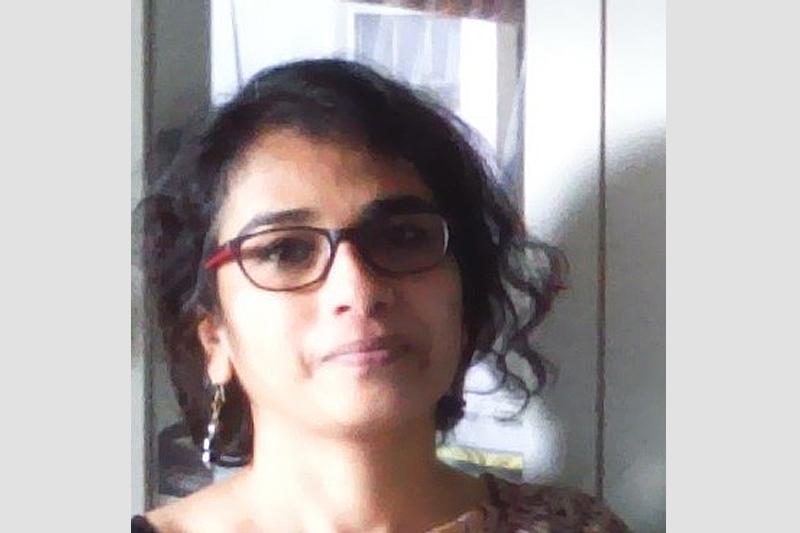
Dr Asha Achuthan is Assistant Professor at the Advanced Centre for Women's Studies, School of Development Studies, Tata Institute of Social Sciences, Mumbai, India.
Asha initially trained, for her graduate and post-graduate studies, in medicine from Calcutta University.
She went on to work on an Mphil in Women's Studies from Jadavpur University, Kolkata, focussing on third world women and their lived experience of development, and thereafter completed a PhD in Cultural Studies from Centre for the Study of Culture and Society, Bangalore, looking at feminist standpoint theory and experience.
Asha’s current work explores the contexts of gender and biomedicine, with a focus on feminist epistemological critiques of the same. Asha teaches courses in feminist science studies, sexualities and desire, and queering feminism, and has designed and teaches courses in feminist methodology in the PhD programme at the Centre.
Asha recently concluded a multi-sited study on the appearance and journey of gender-sexuality as a metaphor in medical text and practice, that also explored changing terms of legibility and entry of persons of gender-marginal lives and experiences into contemporary healthcare spaces in India.
Asha has published in the areas of gender diversity in science institutions, feminist standpoint methodologies, interdisciplinarity in higher education, sexuality and the nation, and the normative character of biomedical technologies. Asha’s recent publications are listed at https://tiss.edu/view/9/employee/asha-achuthan/
Asha’s most recent work is on the dai figure in colonial India, with a book manuscript currently in press.
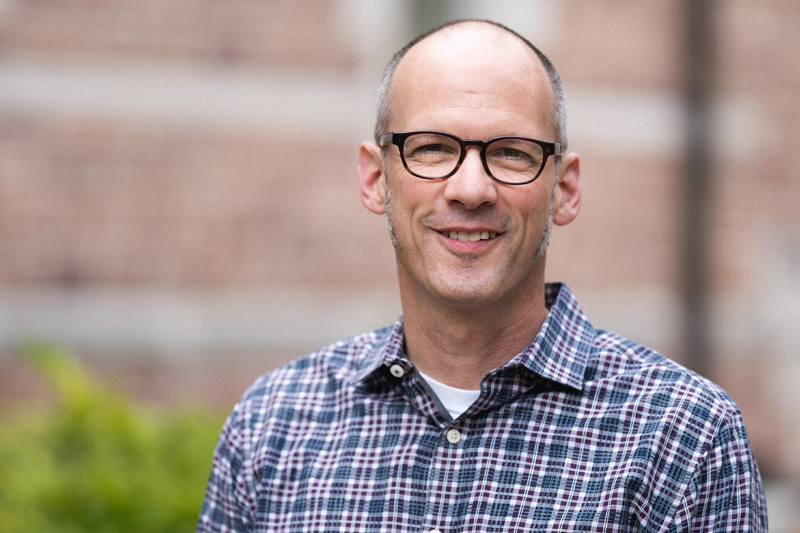
David Cunningham is Professor and outgoing Chair of Sociology at Washington University in St. Louis. His research has focused on drivers of political repression as well as organized racist campaigns by the Ku Klux Klan and other groups, and currently centers on how legacies of historical racialized violence shape ongoing inequalities and divisions.
Interests around the latter have also bridged into the study of contested sites of public memory, including those involving Confederate monuments in the U.S. South. Work in Belfast will consider tourism and public murals in comparative relief with this ongoing work in the U.S.
He is the author of There’s Something Happening Here: The New Left, the Klan, and FBI Counterintelligence and the award-winning Klansville, U.S.A.: The Rise and Fall of the Civil Rights-Era KKK, and more recently he has co-edited a special journal issue on “Legacies of Racial Violence.” Other present studies, on the role of 19th century newspapers in the spread of lynching and mass atrocity and on trajectories of contested historical spaces, are supported by the Mellon Foundation and the James S. McDonnell Foundation.
David is currently the Chair-Elect of the American Sociological Association’s Section on Collective Behavior and Social Movements. Building on related prior public-facing work in the U.S. with the Greensboro Truth and Reconciliation Commission and the Mississippi Truth Project, he also currently serves on the City of St. Louis Reparations Commission and as an instructor and board member for Washington University’s Prison Education Project.
You can read more and find links to publications here.
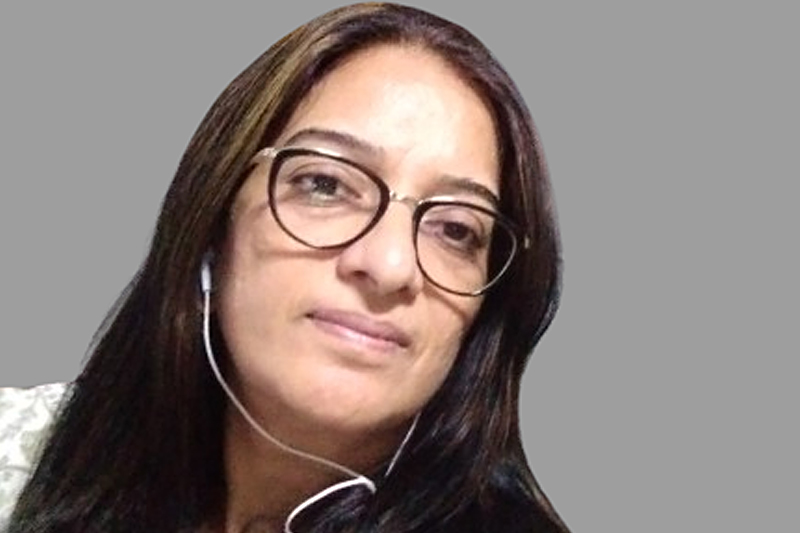
Dr Nandita Banerjee Dhawan is Assistant Professor at the School of Women’s Studies, Jadavpur University, India. She has held administrative positions of Director and Joint Director at the School of Women’s Studies in the past.
Dr Dhawan has explored how patriarchal institutions deploy tropes of the (il)legitimate through the blending of economic liberalism and cultural illiberalism to reinforce the majoritarian privilege and hegemony of the ‘New Indian Middle Class’. She has studied gender and intersectional violence as well as the challenges faced by the Indian women’s/feminist movement due to the category of ‘difference’.
Dr Dhawan has extensive inter/national feminist research collaborations with academics and activists on issues of marriage, domestic violence, the transformation of higher education, and urban (re)structuring. She has published widely on these issues, including co-editng three volumes.
Dr Dhawan is collaborating with Professor Dina Zoe Belluigi and Dr Ulrike Vieten of the Mitchell Institute at Queen’s University Belfast and Dr Asha Achuthan of the Tata Institute of Social Sciences on the project, “Counter-stories of author-ity in transition: Women in the Indian Academy”. The research explores the agency and contributions of first-generation, gender-marginal academics in Indian higher education institutions. Of particular interest to Dr Dhawan, is how their multi-generational insights will contribute to our understanding about the challenges of democratising social formation against main(male)stream authority at various points in time, including methodologies, knowledge systems and participation within the hegemonic cultures of the academy.
For more details, please refer: https://orcid.org/0000-0002-1198-0572
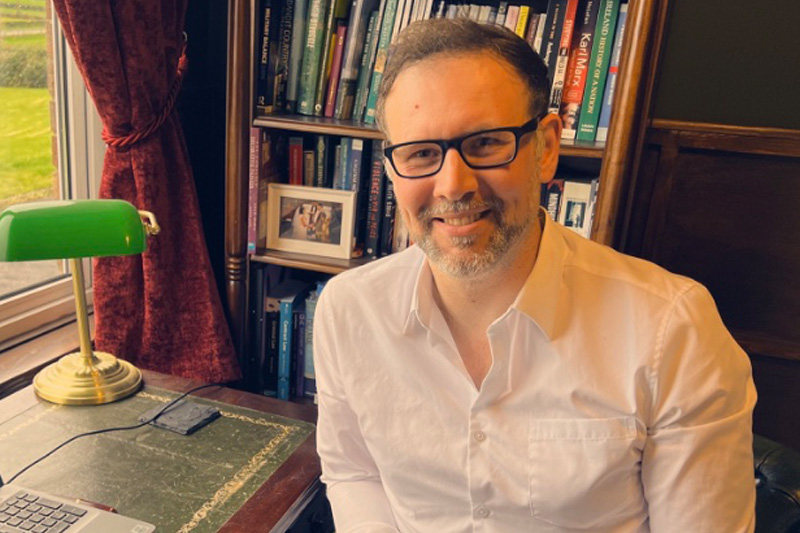
Dr Stephen Herron is a Research Fellow working with Professor John Brewer on the project Nothing in Common? Analysing Identity Formation in the Far Right & Jihadi Extremist Rhetoric, funded by the QUB Agility Fund.
This project will involve comparative analysis of online extremism between Islamic Jihadists and the Far Right.
The project is part of exciting and innovative research involving an international team from leading universities including QUB, the University of Exeter and Emory University. They will use an interdisciplinary mixed methods approach to their research.
Principal Investigator Professor John Brewer will oversee the project while Co-Investigator Dr Herron, will be carrying out research, engaging with stakeholders and completing of a paper for publication in a leading journal.
Stephen is a former Research Fellow and Visiting Scholar at the Mitchell Institute.
Stephen’s research interests include online extremism, misinformation and information manoeuvre as well as armed forces veteran transition and well-being.
In his previous role at the Institute, Stephen was Co-Investigator alongside Professor John Brewer (Principal Investigator) on a 3 ½ year project funded by the Forces in Mind Trust on Understanding ‘Negative Transitioning’ in British Ex-Service Personnel.
The project was one of the largest UK qualitative studies to examine the experiences of veterans who make a negative transition to civilian life. The researchers explored three measures of negative transitioning homelessness, imprisonment, or mental ill-health. With a sample of 323 people from across the UK, the research included 2 extended case studies of veteran prisoners and ex-prisoners in Scotland and homeless veterans in Birmingham.
The study found that overall, these individuals face the same challenges as other ex-Service personnel, but lack psychological resilience and the economic means to deal with them.
Read the End of Award Report, including a series of recommendations for statutory and voluntary organisations here.
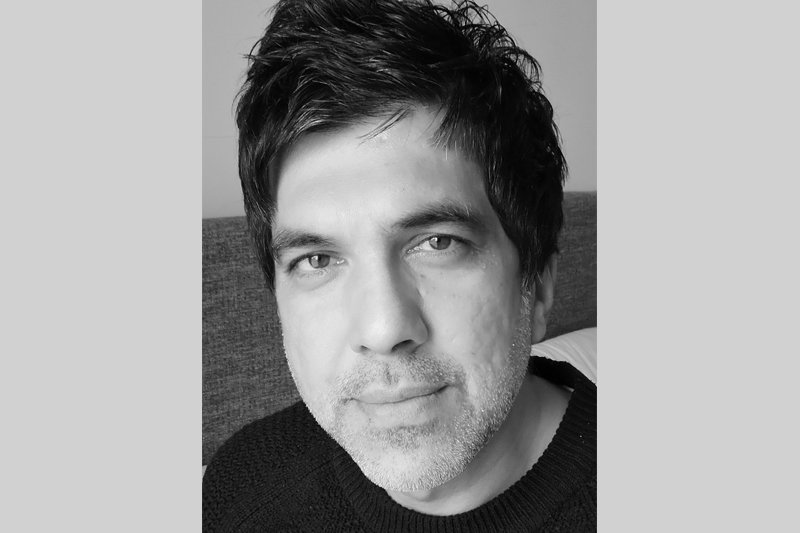
Dr Zaheer Kazmi was previously a Senior Research Fellow at the Mitchell Institute. His research centres on the global and transcultural politics of radicalism and anarchism, in Western and non-Western contexts, and he has related interests in the relationship between liberalism and global Islam.
His academic publications range from a study of the 'anarchist' international theory of the progenitor of modern anarchism, British radical, William Godwin (Polite Anarchy in International Relations Theory, 2012) to articles in the emerging field of 'Muslim' anarchism (Modern Intellectual History, 2015, Journal of Political Ideologies, 2018).
Dr Kazmi was formerly ESRC Mid-Career Fellow at the University of Oxford and a diplomat and Senior Research Analyst at the UK Foreign Office, where he worked on a range of issues in global peace and conflict. An Associate Fellow of the Higher Education Academy (AFHEA), he has also held visiting academic positions at the University of Cambridge and Sciences Po, Paris, and was a Senior Associate Member of St Antony's College, Oxford.
Beyond academia, he has published in a wide range of global media outlets on issues relating to radicalism and dissent, from political commentary (Foreign Affairs, Prospect, Open Democracy) to literary reviews and essays (Times Literary Supplement, Los Angeles Review of Books, The Guardian, Aeon, The Brooklyn Rail, 3: AM Magazine, Tank).
His current research is focused on three main areas, through which he looks forward to engaging with QUB colleagues: a monograph on global anarchism; research into rethinking 'civil war' in global and non-Western terms, in collaboration with Professor Faisal Devji (Oxford); and research and advisory work on global Islam with Institute Fellow, Professor Eric Morier-Genoud, in the context of Africa.
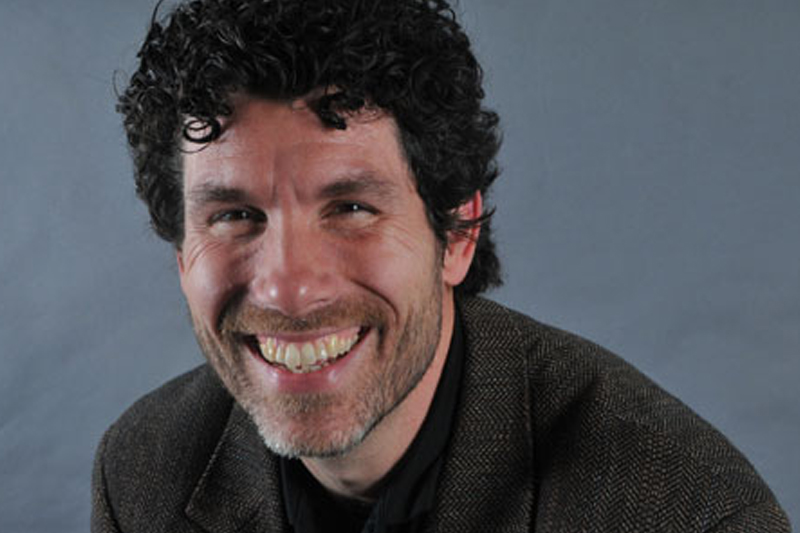
Darren Kew (Ph.D. in International Relations, Tufts University, 2002) is Dean of the Joan B. Kroc School of Peace Studies, where he is also a professor. He studies the relationship between conflict resolution methods – particularly interfaith and inter-ethnic peacebuilding – and democratic development in Africa, Northern Ireland, and the United States. Much of his work focuses on the role of civil society groups in this development.
He has also been a consultant on peace and democracy initiatives to the United Nations, USAID, US Institute of Peace, the US State Department, and to a number of NGOs, including the Carter Center. He monitored the last seven Nigerian elections and the 2007 elections in Sierra Leone, and in 2023-24 co-facilitated a working group of religious leaders focusing on religion and peacebuilding in Belfast, Northern Ireland. Professor Kew was asked by the British and American governments to join an influential international commission requested by the Nigerian government in 2010, which contributed to a major overhaul of its election system. He is author of numerous works on Nigerian politics and conflict resolution, including the book Civil Society, Conflict Resolution, and Democracy in Nigeria (Syracuse UP, 2016), and his articles have appeared in International Negotiation, the Journal of Democracy, and Current History, among others. Research and practice interests include:
- Civil society, conflict prevention, and transnational civil society development
- Religion, ethnicity, and peace and conflict resolution
- International security, crisis intervention, and Early Warning/Early Response
- Conflict resolution efforts as grassroots approaches to promoting democracy
- Conflict and democracy in Africa (especially Nigeria), including elections
- International negotiation and mediation
- Restorative Justice
- Nonviolence as a practice and social movement development
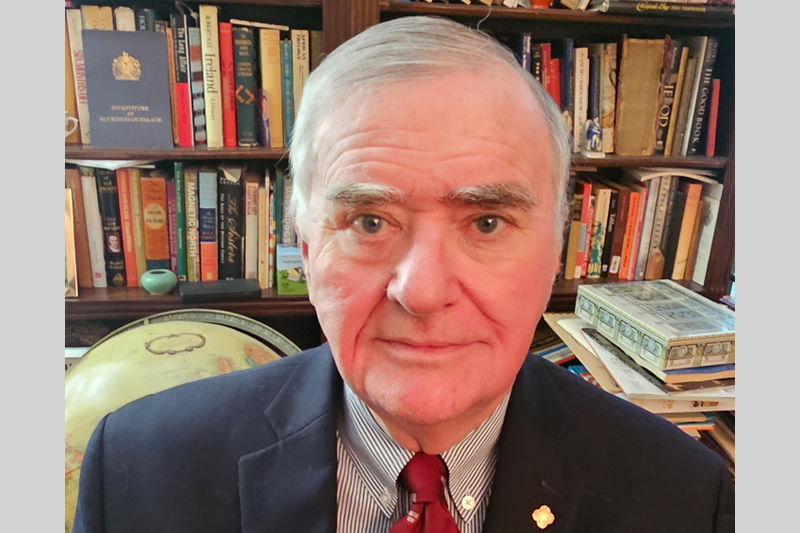
During his tenure, Michael will be working with Dr Ronit-Berger Hobson, Mitchell Institute Fellow: The Politics and Security of Institutional Peacebuilding, on his book project, currently provisionally titled: Pushing for Peace in Northern Ireland: The United States’ Good Intentions.
The book is based on Michael’s long and personal experience as an interlocutor with key political players among elected officials in Northern Ireland, the Republic of Ireland, the UK, and the USA. The book will be a retrospective review of the US’s involvement in the Northern Ireland Peace Process from 1988 to the present and will be both a record of history and a part-memoire of the scholar’s own involvement in the dynamic process.
A key player in the Northern Ireland Peace Process, Michael was the architect of the Independent Monitoring Commission (IMC). Established in 2004 by the British and Irish governments the IMC aimed to fulfil three responsibilities: to monitor and report on the continuing activities of paramilitary groups; to monitor and report at six-monthly intervals on the security normalisation measures taken by the British Government in Northern Ireland and, to consider and report on claims from any party in the Northern Ireland Assembly that a Minister or another party was not committed to democratic means or was not following the correct standards of behaviour. The Commission ceased operations in 2011.
He has held various roles throughout his career including in journalism and academia as well as senior roles at The World Bank, Fogarty International Center of the US National Institutes of Health and the Bill and Melinda Gates Foundation, on global health communication.
Michael was awarded the OBE in 2001 for his work in the USA in creating a balanced understanding of the conflict in Northern Ireland.
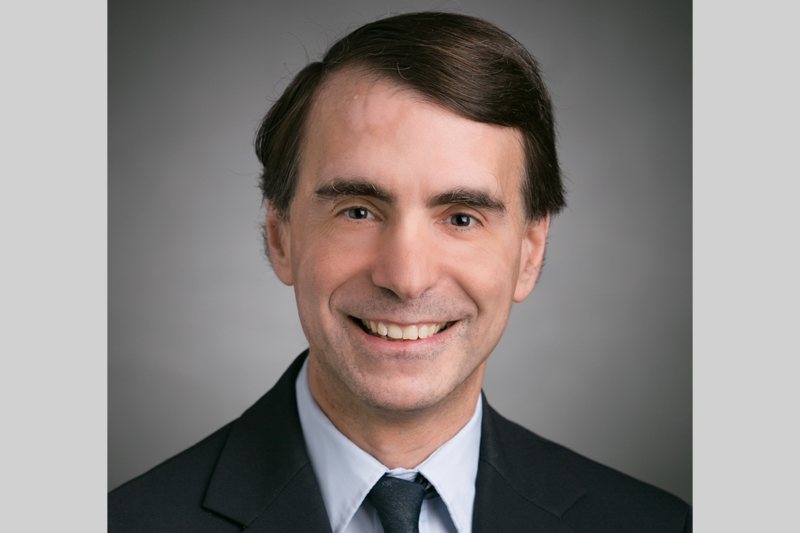
Brad R. Roth is Professor of Political Science and Law at Wayne State University in Detroit. His scholarship applies political theory to problems in international and comparative public law, with a special focus on crises of political authority.
Brad is the author of Governmental Illegitimacy in International Law (Oxford University Press, 1999), Sovereign Equality and Moral Disagreement (Oxford University Press, 2011), and a wide range of book chapters, journal articles, and commentaries dealing with questions of sovereignty, constitutionalism, human rights and democracy. His interest in Northern Ireland stems from his previous work on self-determination and statehood questions (e.g., Israel-Palestine, the former Yugoslavia, and Taiwan) and on retrospective and extraterritorial applications of criminal law to conflict participants.
Brad served from 2010 to 2018 as one of three American Branch representatives to the International Law Association’s Committee on Recognition/Non-Recognition of States and Governments, and currently serves on the ILA Committee on Military Intervention on Request.
Read more here.
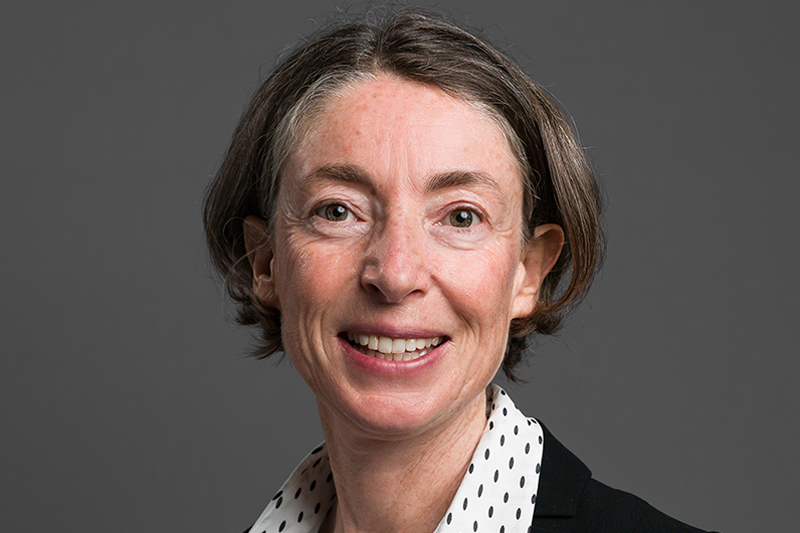
Emma Sky OBE is the founding Director of Yale’s International Leadership Center. She is a Lecturer at the Yale Jackson School of Global Affairs where she teaches great power competition, global affairs and Middle East politics.
She is a member of the Wilton Park Advisory Council and a trustee of the HALO Trust.
Emma has served in several advisory roles in Iraq and Afghanistan. She has also worked in the Palestinian territories to develop Palestinian Institutions and promote co-existence between Israelis and Palestinians. Emma has provided technical assistance on a range of issues including human rights, justice reform, security sector reform and conflict resolution in the Middle East, South Asia and Africa.
Emma is the author of the highly acclaimed The Unravelling: High Hopes and Missed Opportunities in Iraq (Public Affairs, 2015) and In a Time of Monsters: Travelling in a Middle East in Revolt (Atlantic Books, 2019).
Both Emma Sky and Bonnie Weir will be working with us to consolidate the work already done between Yale and the Mitchell Institute, in particular, in relation to the emerging Peace Partnership, which aims to enhance peace leadership globally, and to generate practical benefits and ideas for leaders facing real-time conflict dilemmas.
Read more here.
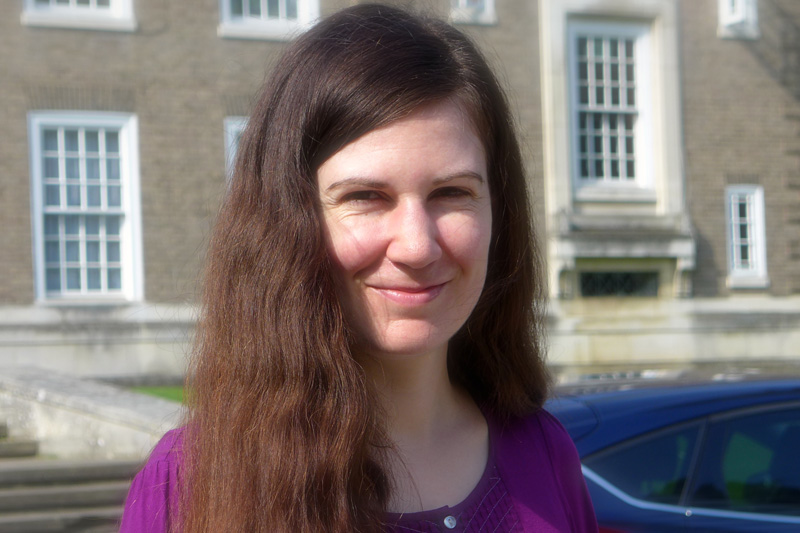
Dr Eva Urban-Devereux was previously a Senior Research Fellow at the Mitchell Institute and is currently a lecturer in drama and theatre practice at the Department of Creative Arts, Media and Music, Dundalk Institute of Technology.
As Visiting Research Scholar at the Mitchell Institute, Eva is building on the research projects, networks and collaborations that she developed during her time at QUB. This includes the CAPS International Graduate School for Creative Approaches to Public Space at the University of Rennes 2 in France (involving QUB and other international universities in offering opportunities to postgraduates), where she was a Visiting Professor for four months in 2023 for the International Chair in Humanities and Social Sciences and co-organised the CAPS International Summer School 2023; the GIS EIRE International Irish Studies Network for which she has been representing the Mitchell Institute since the Network's inauguration; her contribution, as a Mitchell Institute Senior Research Fellow, to the DAAD-funded Public Arts Garage project from the initial funding application to her contribution to the 2022 8-week summer module; and the current development of a collaborative project on 'Tackling Global Histories of Othering' with QUB Mitchell Institute colleagues, the intercultural theatre company Border Crossings; and academics as well as theatre and music practitioners in Mauritius.
She is currently researching and writing a monograph entitled Remorse Drama and Celtic Romanticism: Staging Conflict and Cosmopolitanism since the Scottish Enlightenment.
Eva is the author of La Philosophie des Lumières dans le Théâtre Breton: Tradition et Influences (Enlightenment Philosophy in Breton Theatre: Tradition and Influences) (Rennes: TIR Université de Rennes 2, 2019) and Community Politics and the Peace Process in Contemporary Northern Irish Drama (Oxford: Peter Lang, 2011) as well as numerous journal articles and chapters.
Her most recent publications include the forthcoming journal article 'Embodied Gestures of Human Rights: Performing Remorse, Sentiment, and Sympathy in Romantic Regency Drama', forthcoming: NTQ, 2024; and the forthcoming essay 'In Justice and Intersectionality: Performing Activism against Racism online in Northern Ireland' in Expressions of Intersectional Justice in Modern and Contemporary Literature, Film, and Theatre. Ed. Maha Alatawi and Eamonn Jordan, forthcoming: Oxford: Peter Lang, 2024.
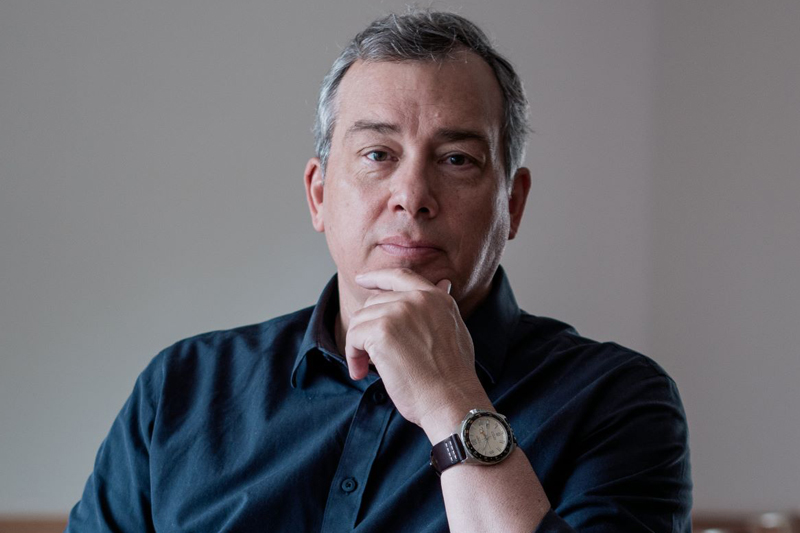
James Waller, is the inaugural Christopher J. Dodd Chair in Human Rights Practice and director of the Dodd Human Rights Impact Programs for the Gladstein Family Human Rights Institute at the University of Connecticut.
James’ fieldwork includes research in Germany, Israel, Northern Ireland, the former Yugoslavia, Rwanda, Uganda, Tanzania, Argentina, Chile, Colombia, and Guatemala.
During his previous Visiting Scholar tenure at the Institute, James carried out research in Northern Ireland which informed his latest book A Troubled Sleep: Risk and Resilience in Contemporary Northern Ireland (Oxford University Press, September 2021).
James has published extensively and his book Becoming Evil: How Ordinary People Commit Genocide and Mass Killing (Oxford University Press, 2nd edition, 2007) was widely acclaimed.
James’ current research project is a comparative analysis of the literal and figurative notion of “walls” in deeply divided societies. Grounded in the lived experience of people in deeply divided societies, the following forms of walls will be analyzed: physical walls of social separation, symbolic walls of identity separation, and hidden walls of geographical separation.
Read more here.
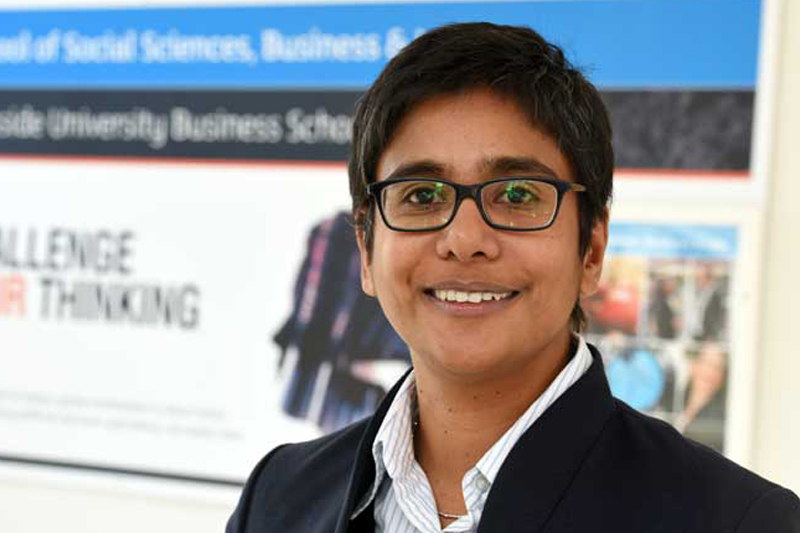
Professor Azrini Wahidin is Head of School for the School of Social and Political Sciences in the Faculty of Arts and Social Sciences at the University of Sydney.
Her work links criminal justice and social justice, looking at post-colonialism, race, sexuality, gender and social exclusion. She also has a strong interest in research methodologies and research ethics.
Professor Azrini Wahidin’s current research focuses on the issues of imprisonment, penal policy, the legacy of conflict in Northern Ireland and South Africa, former female ex-combatants, violence against women, women in the criminal justice system, transitions out of custody, the criminalisation of migrants, the engendering of punishment, LGBT+ prisoners and the experiences of elders in prison in the UK and USA.
Her previous work focused on older women in prison, managing the needs of elders in prison, the meaning of death and dying for prisoners, older LGBT persons, resettlement, the body and dirt.
Azrini has been a recipient of awards and grants, such as ERSC, AHRC, Leverhulme, BA Academy, Horizon 2020, COST, MOJ, NIP, NICCY.
Azrini is the author of a range of academic articles in international journals and edited collections.
Her latest edited book co-authored with the Mitchell Institute’s Professor John Brewer: Ex-Combatants' Voices: Transitioning from War to Peace in Northern Ireland, South Africa and Sri Lanka (Palgrave MacMillan, 2022).
Azrini’s next book Under Siege: The role of women in liberation movements under the Apartheid regime and the transition to peace in South Africa is forthcoming. This research builds on her single authored book Ex-Combatants, Gender and Peace in Northern Ireland - Women, Political Protest and the Prison Experience (Palgrave Press, 2016). The book focused on female former politically motivated prisoners and the role of transitional justice in post-conflict societies.
Read more here.
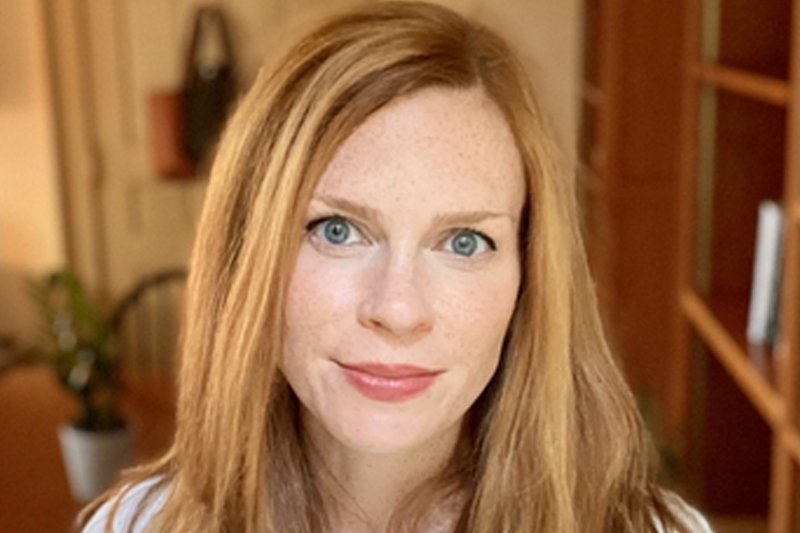
Dr Bonnie Weir is Senior Lecturer in Political Science at Yale University, where she is Co-Director of the Program on Peace and Development (PPD).
The latter role has seen her co-organize with QUB two major and successful Conferences co-hosted by Yale and the Mitchell Institute at Yale University, in 2018 and 2022. She teaches courses on War and Peace in Northern Ireland and Terrorism.
Bonnie’s recent publications include an article in A U.S Special Envoy to Northern Ireland would help to preserve the peace (The Hill, 16 March 2022) and Brexit and Border Town: Troubles Ahead in Northern Ireland? (The New York Review, 11 April 2019).
Bonnie is currently working on a book on the Aftermath of Peace processes as well as projects on sectarianism and minority rights.
Her research is grounded in extensive, qualitative fieldwork paired with original spatial and survey experimental data through which she hopes to highlight the very personal and local nature of insurgency, counter-insurgency, and societal division.
Both Emma Sky and Bonnie Weir will be working with us to consolidate the work already done between Yale and the Mitchell Institute, in particular in relation to the emerging Peace Partnership, which aims to enhance peace leadership globally, and to generate practical benefits and ideas for leaders facing real-time conflict dilemmas.
Read more here.
